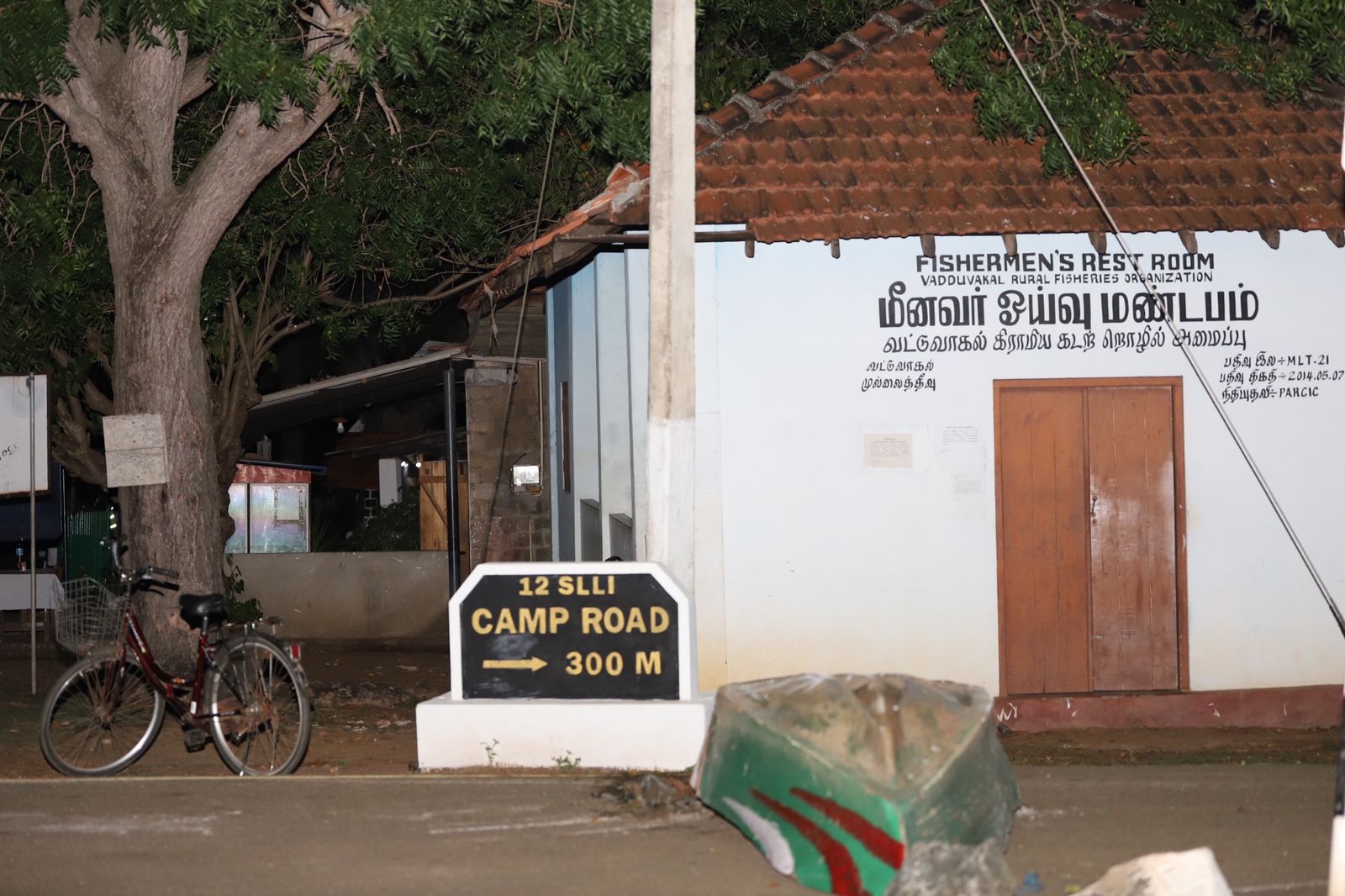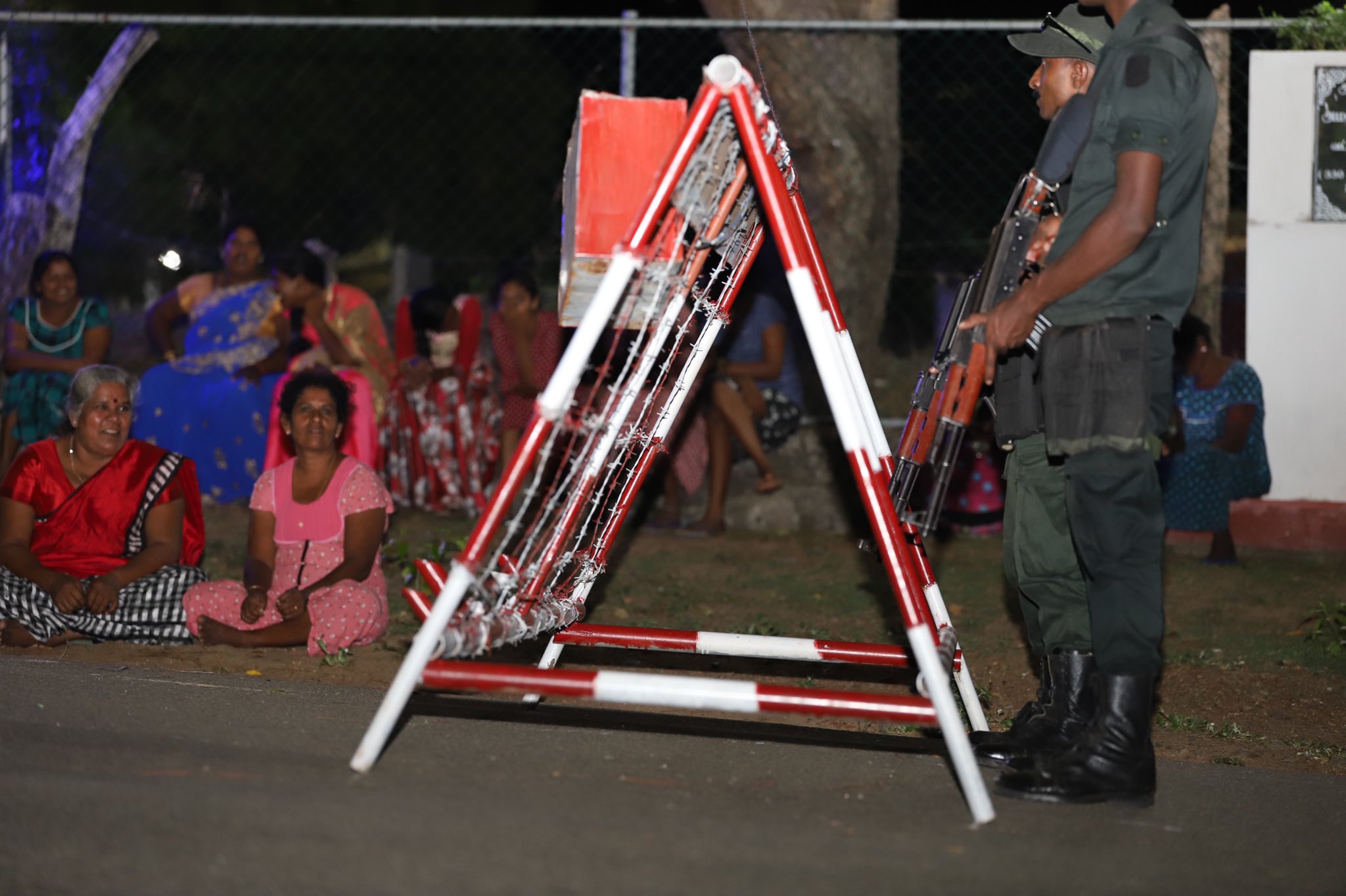
Tamil devotees are protesting at Vadduvakal Saptha Kannimar temple this evening after the Sri Lankan army blocked them from performing religious rites at the temple which sits on land currently occupied by the armed forces.
A Sri Lankan army camp is located on the same route that the local devotees were taking ahead of the temple’s annual festival where they take the deities for ritual bathing in the Mullaitivu sea.
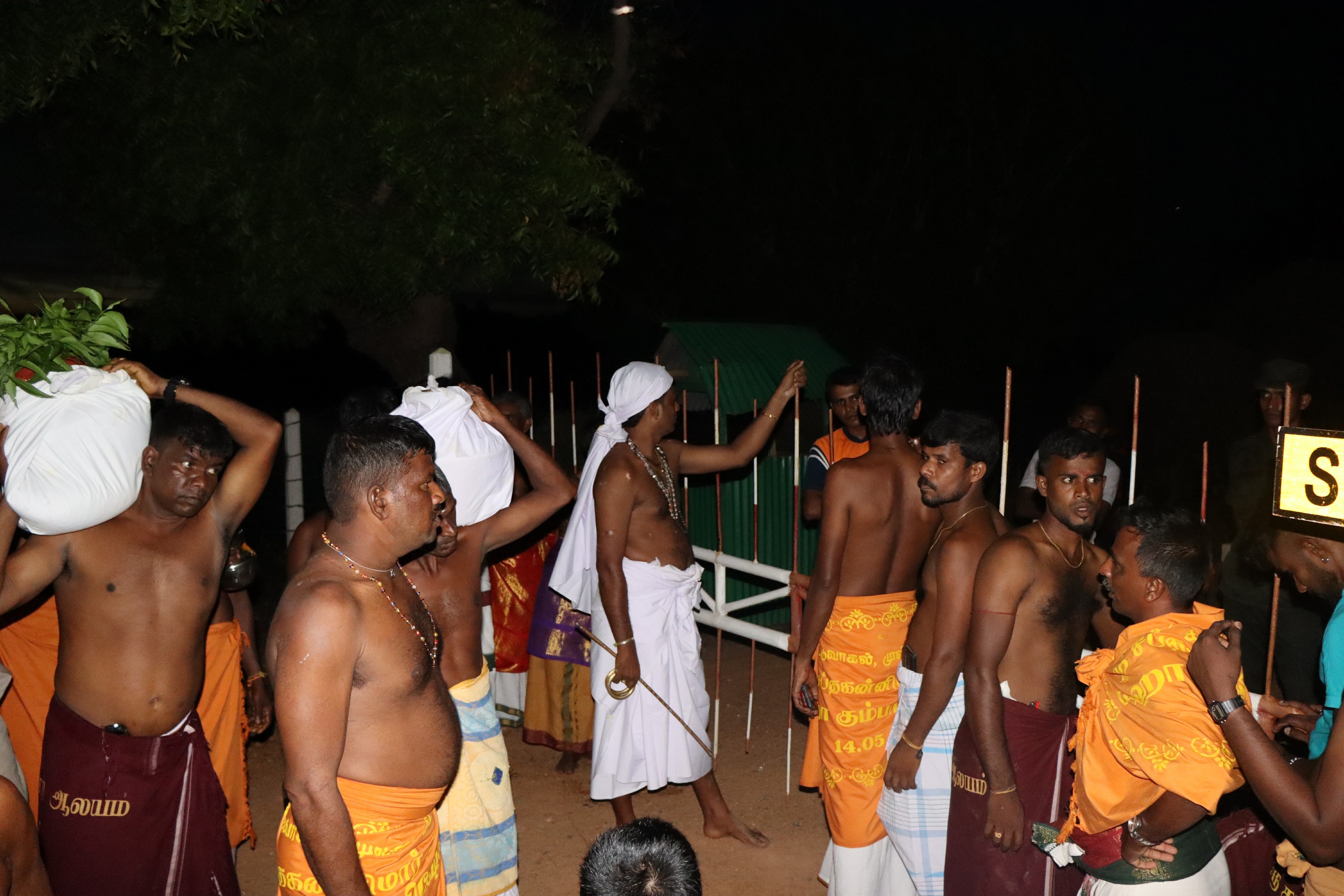
Each year, the army grants permission for the devotees to go through the camp but were denied last year citing the coronavirus pandemic. As coronavirus restrictions have now been lifted, the devotees took their usual route but were blocked by the state’s forces.
The temple administration spoke to the army about the route two months ago and reminded the army three days in writing. Despite this, the army said permission was denied at higher levels and set up road blocks to obstruct worshippers from passing through.
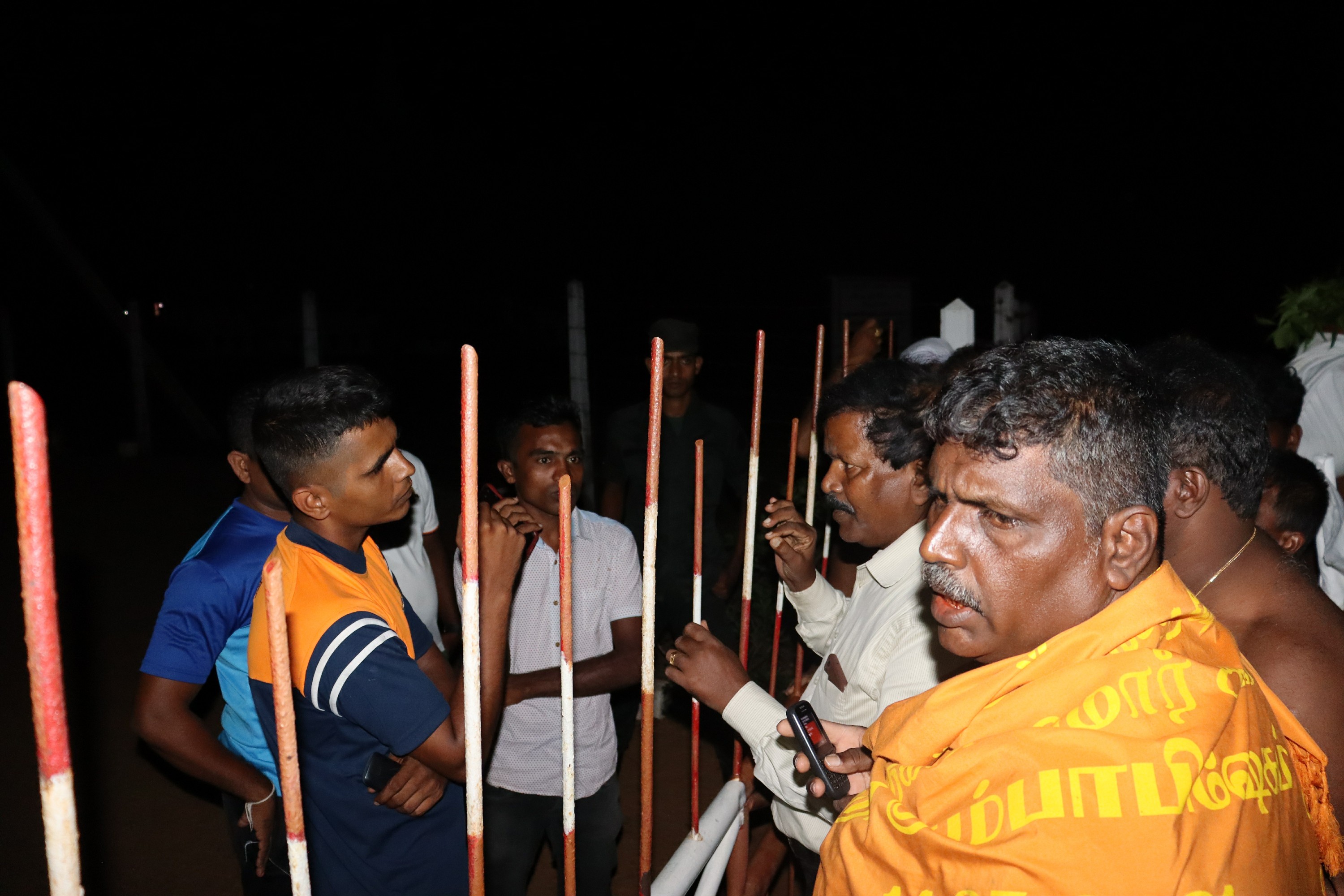
The temple administration and worshippers decided to take an alternative route after arguing with the Sri Lankan army for four hours. However, locals enraged by the situation, began gathering at the temple site and demanded that the occupied land be released.
The army deployed around 50 armed troops to threaten and photograph the locals. Braving the intimidation, the locals stayed and demanded the army to demilitarise the land, to which the army made a show of removing their installations from those lands.
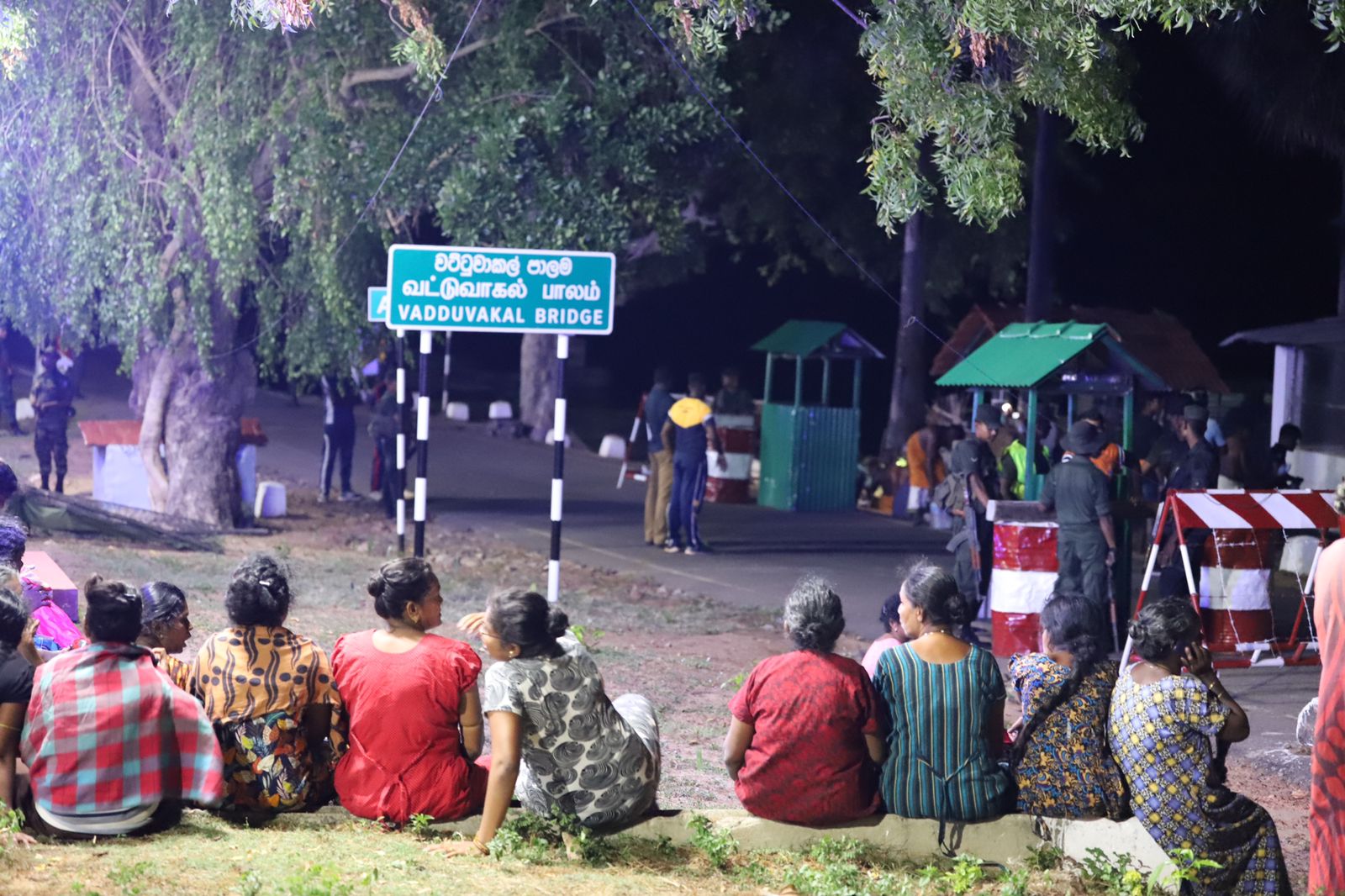
Although the army began dismantling their checkpoints, they beefed up their presence at the site and threatened and took photographs of the protesters in an attempt to intimidate them.
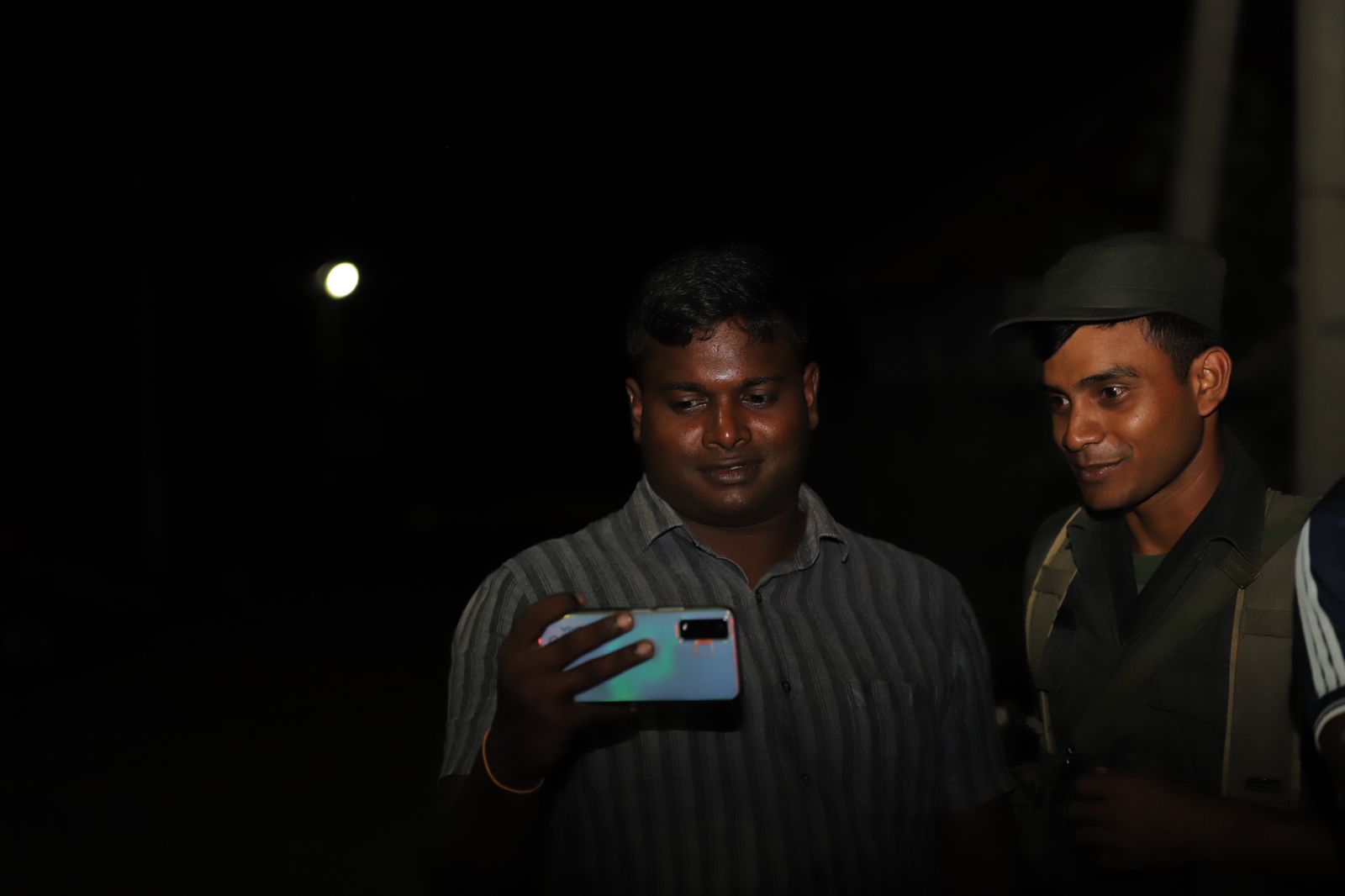
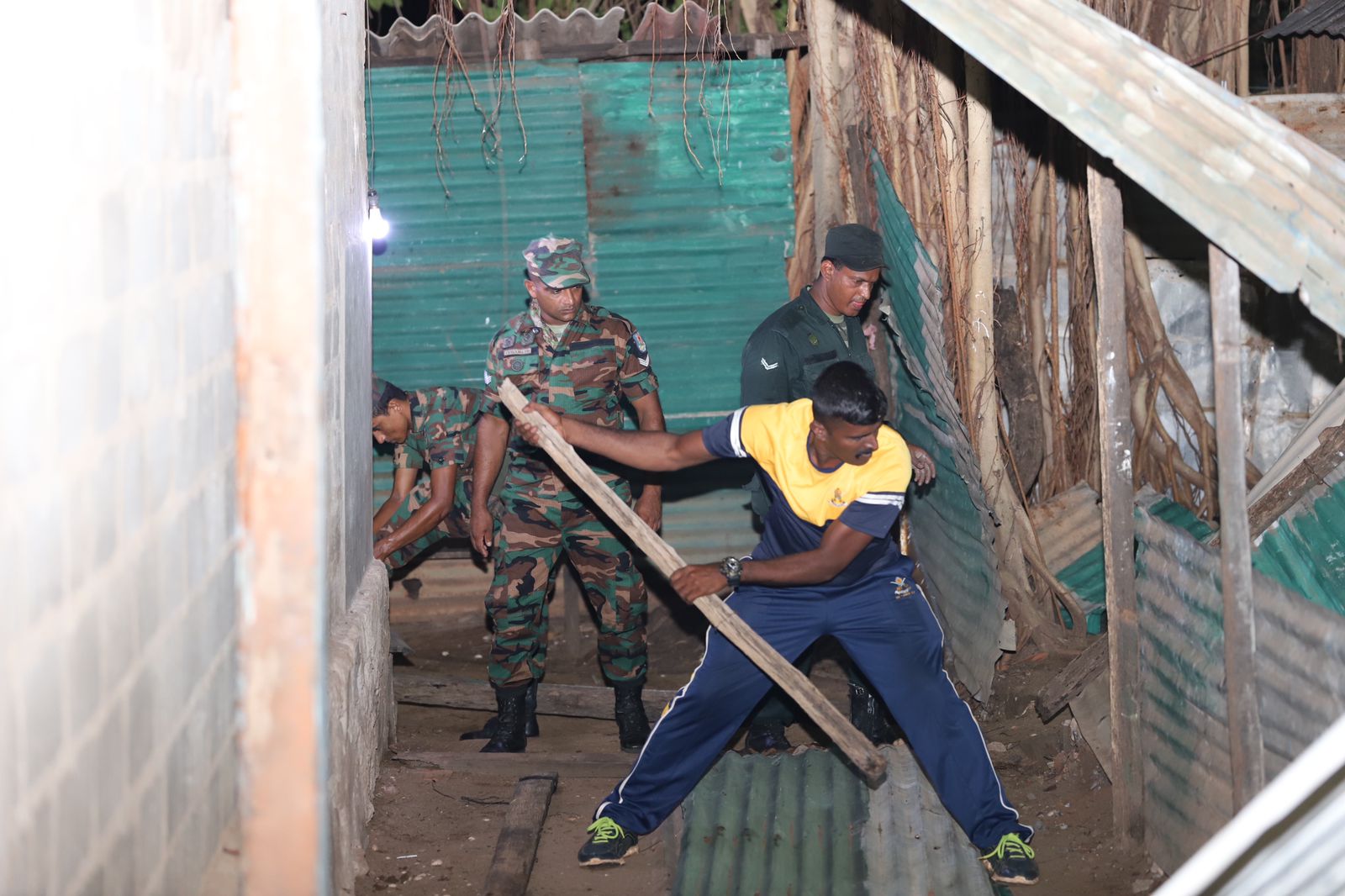
The locals then proceeded to erect a barrier around that land and put up a makeshift sign saying it belongs to the Sapta Kannimar temple.
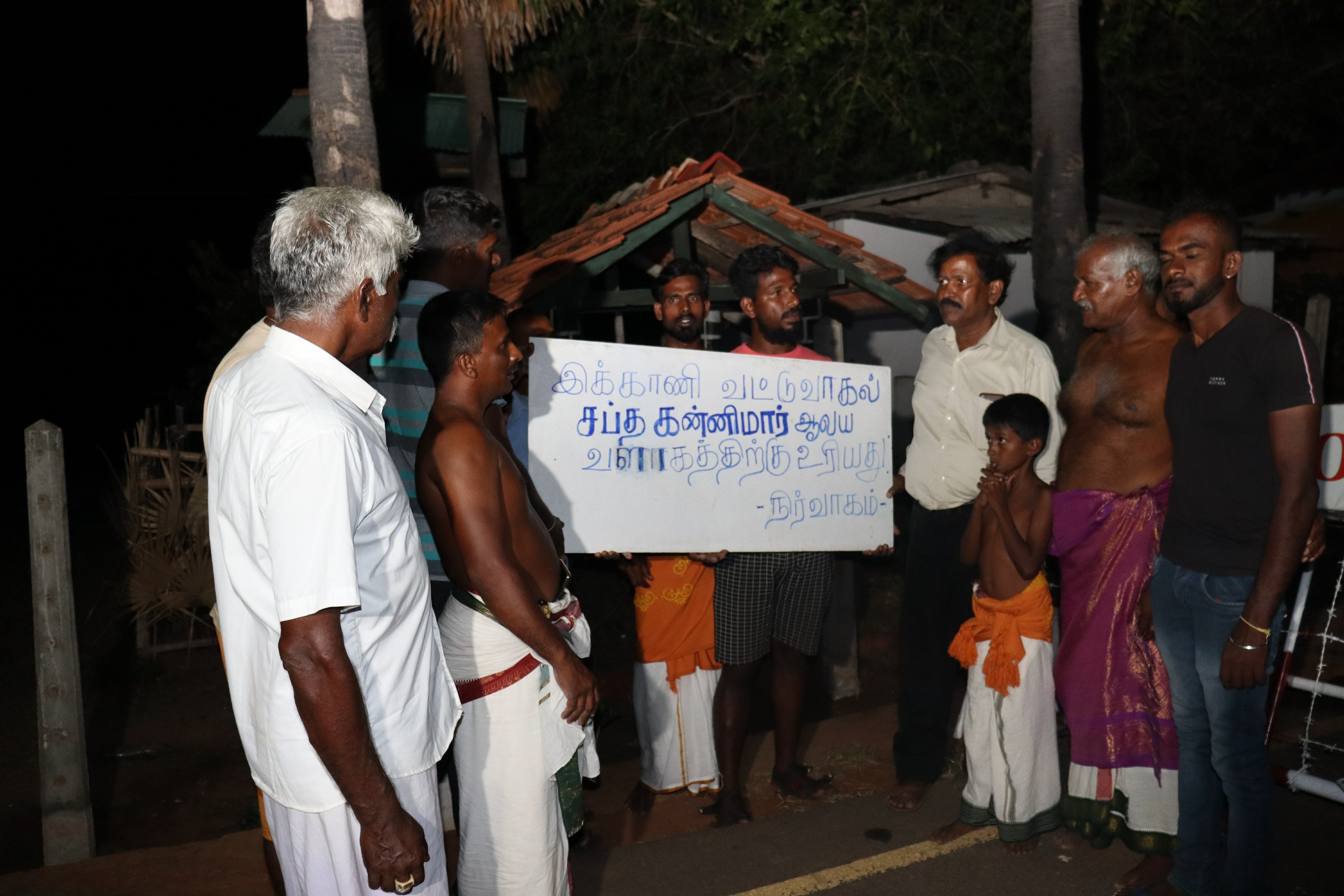
Around 200 people remained at the blocked route and also protested against the army putting up a road sign claiming the road belongs to the army which had only gone up during the pandemic.
